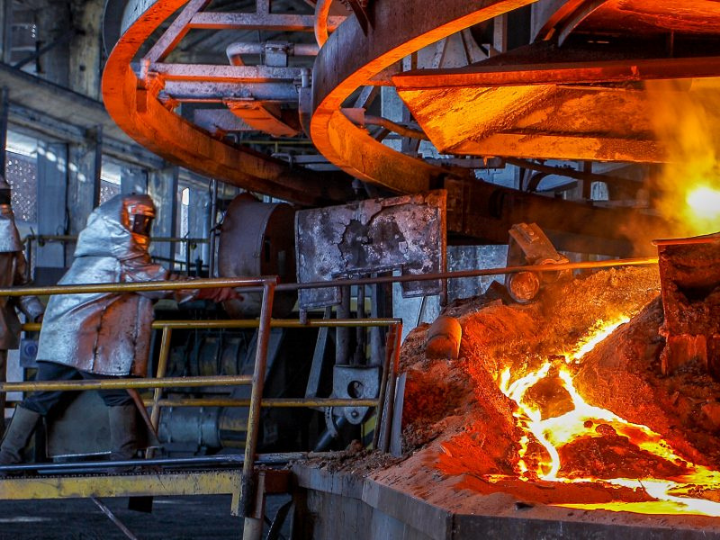by Lukas Scheid
Only 14% of publicly listed companies in the steel, cement, aluminum, paper and mining sector are on track to meet the Paris Agreement’s 2°C climate target, according to a report by the Transition Pathway Initiative (TPI), a global investor group supported by the UN. Still, some European companies offer hope, EURACTIV Germany reports.
Industrial decarbonisation is probably the biggest challenge of the European Green Deal, which aims to reduce Europe’s emissions down to net-zero by 2050.
In a study published this week, the independent capital-owner-led TPI assessed mining companies and manufacturers of paper, steel, cement and aluminum from around the world to find out whether they are aligned with the climate goals of the Paris Agreement.
The result: 95 out of the 111 large publicly-listed companies studied (86%) are failing to align with a pathway to 2°C or below by 2050.
Of the 111 companies in global heavy industry surveyed, only 16 are well on track to revising their own production processes in such a way that they could meet the requirements of a climate-neutral future.
Overall, only 14% of them are on track to meet the international treaty’s 2°C warming target.
While heavy industries are generally considered difficult to decarbonise, the pace at which new ways to reduce emissions are being tested and implemented is too slow, the report warns.
“Whilst it is concerning that so few industrial companies are ready it is clear that new industrial processes based on circular economy principles give us a tipping point of technically viable, economically attractive solutions,” said Adam Matthews, co-chair of TPI.
European companies perform well
The TPI research highlights the poor performance of the aluminium and paper sectors in particular. Only one company in both sectors (Rio Tinto – specifically for aluminium) is aligned with a 2°C or below pathway by 2050.
Steel production offered a silver lining. Whereas only five companies were in line with the Paris goals for 2030 last year, this year there are eight (28%). However, when looking at the 2050 Paris targets, only five companies still meet this threshold.
According to the study’s authors, this difference is due to the speed of the planned decarbonisation: a large share of the targets for heavy industry are not expected to be met until after 2030 when new technologies like hydrogen will become more widely available.
European steel producers perform comparatively well. With Acerinox, Arcelor Mittal, Thyssen Krupp and Voestalpine, four Europeans are among the top 5, and the Dutch-Luxembourg company Arcelor Mittal is even the world’s biggest steel producer.
The report argues that the circular economy can help address the challenges of ‘hard to decarbonise’ sectors by using new processes to design out waste and pollution and recycle more products and materials.
Investment in decarbonisation
The TPI study serves to inform investors about the risks of investing in companies and sectors that are inadequately prepared for the low-carbon transition.
According to the researchers, the 86% of companies that fail to align with the Paris goals are worth $856 billion in market capitalisation.
“When long-term climate-conscious investors factor these findings into their investment process, the climate risks associated with the 86% who are not aligned are going to be significant in comparison to the 14% who are aligned,” the authors said.
*first published in: www.euractiv.com




 By: N. Peter Kramer
By: N. Peter Kramer
